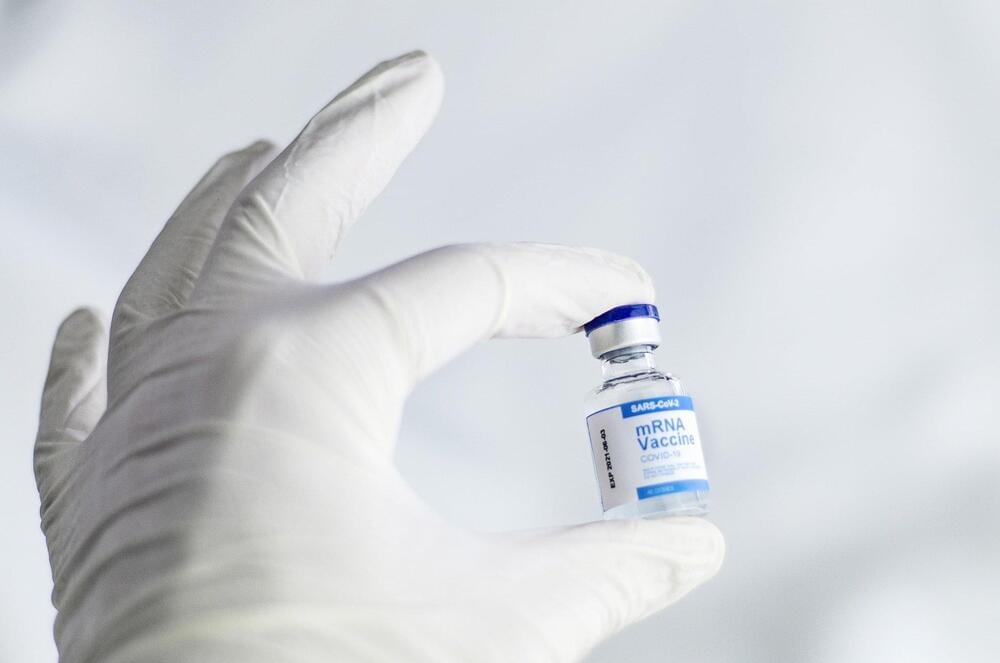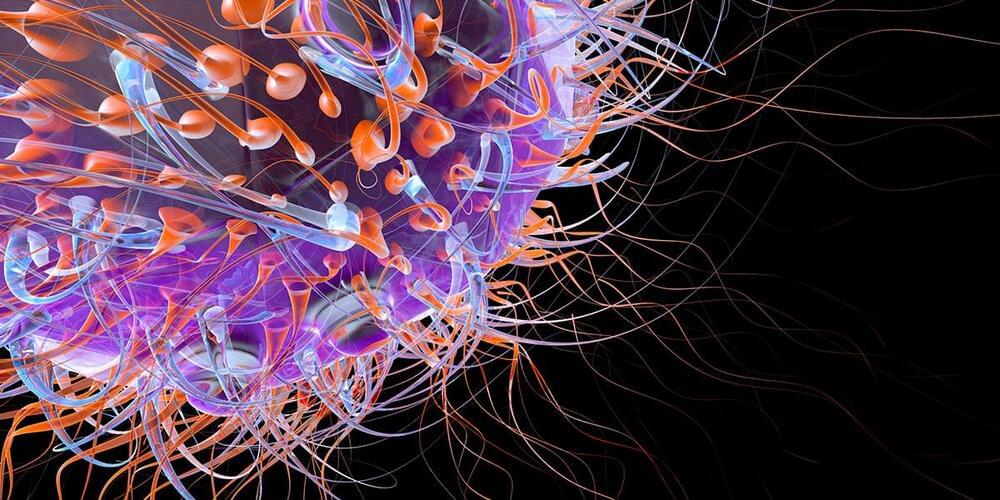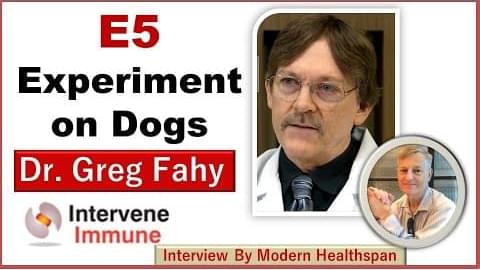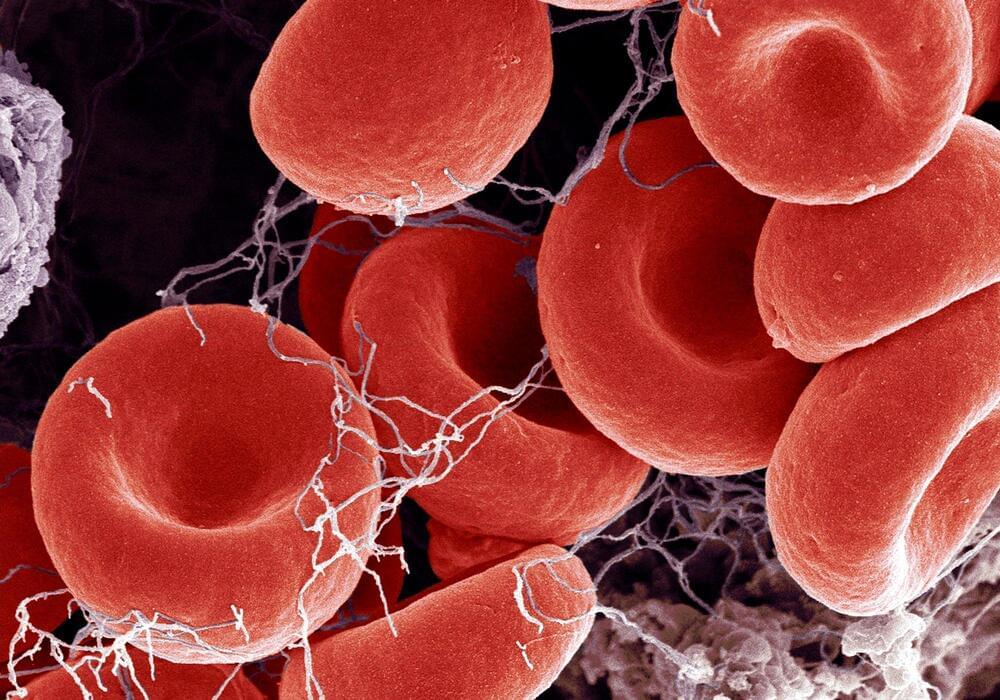A team of mad scientists successfully 3D-printed out a living, “viable” glioblastoma tumor — the deadliest kind of brain cancer — for the express purpose of learning how to kill it.
Practice makes perfect!


In its first full VR news briefing, the company showed how Workrooms users can design avatar versions of themselves to meet in virtual reality conference rooms and collaborate on shared whiteboards or documents, still interacting with their own physical desk and computer keyboard.
Aug 19 (Reuters) — Facebook Inc (FB.O) on Thursday launched a test of a new virtual-reality remote work app where users of the company’s Oculus Quest 2 headsets can hold meetings as avatar versions of themselves.
The beta test of Facebook’s Horizon Workrooms app comes as many companies continue to work from home after the COVID-19 pandemic shut down physical workspaces and as a new variant is sweeping across the globe.
Facebook sees its latest launch as an early step toward building the futuristic “metaverse” that CEO Mark Zuckerberg has touted in recent weeks.


Let the record show that the current COVID-19 vaccines work, and they work well. But what is the next step in vaccine development, especially amid increasing rates of breakthrough infections and emergence of variants of concern?
In a new Northwestern Medicine study in mice, researchers took one of the current vaccines, which is based on the novel coronavirus’s infamous spike protein, and added a different antigen, the nucleocapsid protein, to form a new, potentially improved version of the COVID vaccine. The nucleocapsid protein, which is an internal RNA-binding protein, may help kick the immune system into high gear much more quickly than the spike protein is capable of since it is among the most rapidly and highly expressed proteins in coronaviruses.
“At this point, we’re just trying to figure out ‘What should the 2.0 vaccines be?’” said senior and corresponding study author Pablo Penaloza-MacMaster, an assistant professor of microbiology-immunology at Northwestern University Feinberg School of Medicine. “It seems like adding nucleocapsid to the vaccine renders it more protective, relative to having only the spike.”


Val Kilmer marked the release of his acclaimed documentary “Val” (now streaming on Amazon Prime Video) in a milestone way: He recreated his old speaking voice by feeding hours of recorded audio of himself into an artificial intelligence algorithm. Kilmer lost the ability to speak after undergoing throat cancer treatment in 2014. Kilmer’s team recently joined forces with software company Sonantic and “Val” distributor Amazon to “create an emotional and lifelike model of his old speaking voice” (via The Wrap).
“I’m grateful to the entire team at Sonantic who masterfully restored my voice in a way I’ve never imagined possible,” Val Kilmer said in a statement. “As human beings, the ability to communicate is the core of our existence and the side effects from throat cancer have made it difficult for others to understand me. The chance to narrate my story, in a voice that feels authentic and familiar, is an incredibly special gift.”

If you’ve ever seen a petunia with artfully variegated petals, then you’ve seen transposons at work. The flower’s showy color patterns are due to transposable elements, or DNA sequences that can move locations within a genome. Yet when it comes to transposons’ effects on humans, the results might not be as lovely or desirable.
As researchers learn more about these so-called mobile genetic elements, they’ve found increasing evidence that transposons influence and even promote aging and age-related diseases like cancer as well as neurogenerative and autoimmune disorders, says John Sedivy, a professor of biology and director of the Center on the Biology of Aging at Brown. Sedivy is the corresponding author of a new review article in Nature that discusses the latest thinking and research around transposons.
“Let’s put it this way: These things can be pretty dangerous,” said Sedivy. “If they are uncontrolled, and there are many examples of that, transposons can have profound consequences on most forms of life that we know of.”

The Conboys are looking at human trials soon but not with E5. it will be interesting to see how their trial compares to this E5 dog trial.
In this video Dr. Fahy shares his opinion on some of the up and coming anti-aging therapies, including NAD boosters, Hyperbaric Oxygen Chambers and senolytics.
Intervene Immune website:
http://interveneimmune.com/
Contact to join the trial or invest.
http://interveneimmune.com/?page_id=1148
Dr. Greg Fahy is a world renowned cryobiologist and is also the chief science officer, and co-founder, of Intervene Immune, a company which pioneers treatments for thymus regeneration and age-related immune system decline. Dr. Fahy Designed and led the pilot TRIIM trial which first time showing both thymus rejuvenation and reversal of human epigenetic age. He is now running the follow up phase II trial TRIIM-X with the aim of confirming and extending the results.
************************************************************
Health claims Disclosure: Information provided on this video is not a substitute for direct, individual medical treatment or advice. Please consult with your doctor first. Products or services mentioned in this video are not a recommendation.
Audio Copyright Disclaimer:
Please note that we have full authorization to the music that we used in our videos as they were created using the service WeVideo which provides the rights to the music. The rights are detailed in the terms of use that can be reviewed here https://www.wevideo.com/terms-of-use and any following inquiries should be addressed to legal@wevideo.com.
*****************************************************************
If you would like to support our channel, we’d love a coffee…thank you! https://www.buymeacoffee.com/mhealthspan

The gut microbiota plays an important role in human health and the prevention of disease. As a result, changes in its regular functioning may play a part in some medical conditions, such as irritable bowel syndromeTrusted Source, obesityTrusted Source, and cardiovascular diseasesTrusted Source.
A recent study investigates the connection between high fat diets, gut bacteria, and an increased risk of developing heart disease.

New evidence shows that patients with Long COVID syndrome continue to have higher measures of blood clotting, which may help explain their persistent symptoms, such as reduced physical fitness and fatigue.
The study, led by researchers from RCSI University of Medicine and Health Sciences, is published in the Journal of Thrombosis and Haemostasis.
Previous work by the same group studied the dangerous clotting observed in patients with severe acute COVID-19. However, far less is known about Long COVID syndrome, where symptoms can last weeks to months after the initial infection has resolved and is estimated to affect millions of people worldwide.